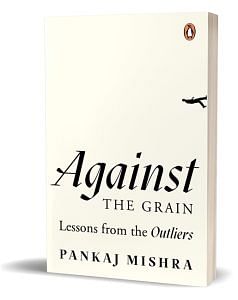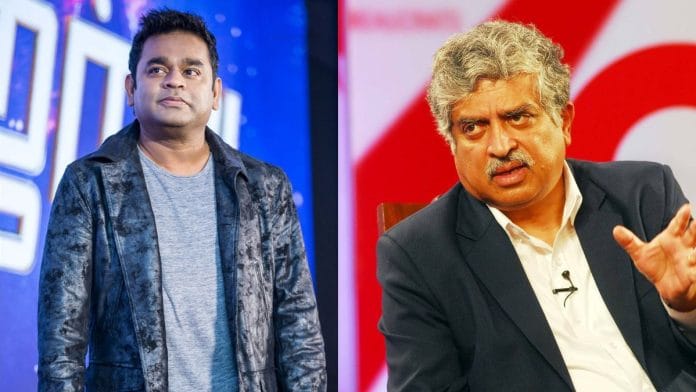A R. Rahman’s journey, marked by profound musical achievements that have resonated with millions, offers a unique lens through which to examine this topic. His perspective on failure, distinct in its depth and humanity, challenges conventional perceptions. How does someone who is celebrated globally for his artistic contributions interpret the notion of failure? This question sets the stage for delving into Rahman’s personal philosophy, which has undoubtedly shaped his illustrious career and personal ethos. AR, can you share a personal experience that shaped your understanding of failure and success?
A.R. Rahman: ‘My son had just released his first single, and the next day, he came to me and said, “Daddy, I am very scared before the release.” I told him, “You don’t have to be scared. You finished your thing. So take it step by step. Don’t try to drink the ocean in a day. Take it drop by drop, and it will show you the way.”
That’s a powerful metaphor, AR. How does this perspective influence your view of failure? ‘I think if you do something thinking that it’s going to fail, it will fail. If you do something thinking it’s going to be the best thing you can ever do, it will be like that, whether it gets approved or not. Irrespective of whether people are ready to take it, they can’t deny the fact, the beauty of it—sometimes it may not suit their taste. It happens so constantly in my life.
Like, when my music comes out, they say, “What is this stuff?” But because there is honesty on our part when we produce it, we know that not everything has to be what people want. Like when you go to the garden, you see different colours of flowers. One day, you feel like red; another day, you feel like yellow. You have never failed as long as you can be a source of goodness—in your work, character, everything—smiling at people, even though you can’t and you are in pain! You don’t lose anything by being nice to others.’ Isn’t that something?
The idea that your worth isn’t tied to your successes or failures but to the goodness you bring into the world. It’s a refreshing perspective that challenges us to rethink what failure means and how we perceive failure. AR, you’ve met many icons, like Michael Jackson. Can you share how such experiences influenced your understanding of success and failure? ‘How you look at failure is different. Like when I met Michael Jackson, I failed to take a photograph. But today, in hindsight, I feel not taking a photograph with him was the best thing I did.
When you are a celebrity, it’s sometimes very hard . . . Because he was our generation’s biggest idol, and I am so proud that I don’t have a photograph with Michael Jackson because I didn’t want to disturb him; he was so vulnerable when I met him.’ Ah, the paradox of celebrity. It’s a dance, isn’t it? Balancing the public’s expectations with your own needs and boundaries. Rahman’s encounter with Michael Jackson is a lesson in character, consideration, restraint and respect, a moment that defies conventional notions of success and failure.
AR, your perspective suggests a deep understanding of human connection. How does this shape your view of failure in terms of personal interactions and professional choices? ‘This is why we look at failure as if it could mean different things to people. In my opinion, as long as you become a reason for goodness for others, serving humanity, you have not failed!’ So what does failure mean to you? As Rahman suggests, is it a seemingly missed opportunity, a public-perceived misstep, or is it a failure to be a source of goodness to others? It’s a question worth pondering.
‘It’s perfectly okay to pivot or tweak, but don’t give up too early.’ —Deep Kalra, founder and chairman, MakeMyTrip
Entrepreneurship is indeed a dance with uncertainty. Deep Kalra, the visionary behind MakeMyTrip, has mastered this intricate dance. Reflecting on his journey prompts me to contemplate my own entrepreneurial path, especially those critical moments on the brink of surrender. Deep, during those challenging times, what kept you from giving up? Deep Kalra: ‘Most people don’t think that if they give up once, it’s highly unlikely they will have the courage to do another start-up. I’d use the term “not succeeding” rather than failing because I think you learn a lot through that experience. Even if I am bruised and battered, I will try again.’
The metaphor of bruises in entrepreneurship strikes a chord with me. Deep, what do you believe it takes to muster the strength to say ‘Let’s try this again’? ‘This is my biggest learning, and I’d like to share this with all young entrepreneurs: don’t give up too early! It’s perfectly okay to pivot, to tweak, to do anything. But don’t give up too early. So when you start a new business, and I’ve told many of my ex-colleagues the same thing when they said they wanted to be an entrepreneur: don’t look in the rear-view mirror too soon.
No great business can be built overnight.’ The notion of instant gratification being a myth in the start-up world resonates deeply. Deep’s insights remind me of the years of labour and perseverance invested in my start-up. In your view, how does the entrepreneurial journey in India compare to the fast-paced world of Silicon Valley? ‘Most people start comparing their stories with those from Silicon Valley, but Silicon Valley works at 2x, 3x, or even 4x the speed. Today, in India, I think it takes a minimum of seven to ten years to build a great business. So you have to be a little patient. Don’t give up early!’ Deep’s insights prompt a critical question: What is our patience threshold in this high-stakes entrepreneurship game? It underscores the art of endurance, challenging us to consider how long we are willing to dance with the unpredictable nature of entrepreneurship.
‘I don’t have a fear of failure. Beyond the learning experience of a failure, I don’t dwell too much on the past.’ — Nandan Nilekani, co-founder, Infosys, and former chairman, Unique Identification Authority of India (UIDAI)
When you listen to Nandan Nilekani, you hear from a man who has built platforms that have touched nearly every Indian life. His fearlessness in the face of failure has often made me wonder what gives him that audacity. Nandan, your experience with the parliamentary elections in 2014 was widely followed. Can you share how this experience shaped your understanding of failure and learning? Nandan Nilekani: ‘Failure teaches you many things.
Like when I contested the parliamentary elections [in 2014], everyone knows I failed, but I learnt many things in the process. For example, by nature, I am a builder. One of the things I realized in politics was that it was confrontational. Frankly, that does not interest me at all. Building and creating new things is what interests me. I look for opportunities where something has to be built and where there is enough momentum to make it happen, like Aadhaar, UPI, etc. So, while I failed, it was a learning experience.’ Nandan’s knack for building isn’t just about technology; it’s about constructing a mindset where failure is not the enemy. It’s a lesson in resilience. How many of us can see our setbacks as the scaffolding for our next big venture?
You’ve mentioned that you’ve never had a fear of failure since childhood. Could you elaborate on the experiences that contributed to this trait? ‘. . . I have never had a fear of failure. It has been one of my personality traits since childhood. The fact that I had to move out of my parents’ house at the age of twelve, the fact that I had to study on my own to get into IIT [Indian Institute of Technology]—all those things gave me a lot of self-confidence; I could tackle anything. I knew very well when I had gone for election that I could lose this one, and I did lose it.’ The humility and foresight Nilekani displayed in his election bid are rare. It’s a lesson in keeping your ego in check, even when scaling the heights. How often do we let our past successes blind us to the realities of a new challenge?
Nandan, post-election, how did you pivot your focus to new projects like UPI and EkStep? ‘I don’t dwell too much on the past. I don’t keep thinking about what happened last year or something; I just look forward and think about what do I do next. So when I lost the election, I asked myself, “What do I do next?” and then plunged into things like UPI and EkStep. Then, I started investing in start-ups to understand what was happening in this new world of start-ups because I had never done that before. So my investment life began four to five years back, and it all came after the election failure.’
 This excerpt from Pankaj Mishra’s ‘Against The Grain: Lessons from the Outliers’, has been published with permission from Penguin Random House India.
This excerpt from Pankaj Mishra’s ‘Against The Grain: Lessons from the Outliers’, has been published with permission from Penguin Random House India.






